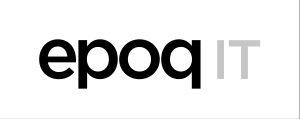How Remote Working Is Changing Businesses
We recently spoke with five industry experts, with a view to understanding how the current situation is affecting employees, processes and organisational infrastructure. Leaders from Workforce Management, Payroll Processing, Facilities Management, Managed IT Services and Health & Nutrition shared their findings with us, since the onset of the Coronavirus pandemic and its subsequent lockdown.
How Remote Working Is Affecting Workforce Management
Conor Shaw CEO – Bizimply
Bizimply is an All–In-One People Solution that changes forever the way shift oriented businesses are managed. Bizimply allows our customers to manage their employee scheduling, time and attendance, in-store communication, frontline HR and shift reporting across multiple locations. Each application is powerful alone, but stronger together, in 3 suites of products on one easy to use cloud based platform. It is easily integrated to payroll partners like PayCheck Plus and is currently used daily in over 2,500 locations, across 11 countries and by 35,000 employees.
To find out more visit: www.bizimply.com
At the end of May, we published a survey which aimed to establish the impact of the lockdown on businesses relying on shift management across their multiple locations. Over 75% of the businesses we surveyed (including restaurants, bars, cafes, nightclubs, pubs and fast food restaurants), said, unsurprisingly, their biggest concern was their ability to make money. Nearly 60% of respondents were worried there wouldn’t be enough customers for their business, while 52% were worried about overhead costs for rent and wages.
But we can see some light at the end of the tunnel, at least where wages are concerned. We found that where businesses utilise the time and attendance of their hourly-paid staff in a scientific way, they can reduce costs and increase productivity while simultaneously improving sales.
What is alarming though is that despite news of infection rates rising in the UK and Ireland since the ease of lockdown restrictions and the current developments in Leicester, one survey suggests that businesses may not be prepared for a second wave. Less than a third (31.6%) surveyed stated they had a contingency plan in case of another shutdown. Most of these businesses were restaurants, cafés and related businesses.
Businesses have to realise the need to create a contingency plan that will allow for flexibility should they need it if restrictions are re-imposed. During the pandemic, we provided a solution to Bizimply customers for compliance in back-to-work protocols and shift protocols to reassure staff and customers and reduce unnecessary contact between employees on different shifts in the event of infection. And it was highly effective.
Businesses need to implement measures like these. In times of turbulence, businesses with hourly-paid staff will need a technological solution to control overheads and increase sales.
How Remote Working Is Affecting Pay & Payroll Processing
Anne Reilly CEO – Paycheck Plus
Paycheck Plus are a multi-award winning payroll-outsourcing service. Operating from ISO accredited Payroll bureaus in Manchester and Dublin, Paycheck Plus manage many of the UK and Ireland’s largest and most complex payrolls, processing more than 195,000 payslips totalling more than £400,000,000 every year.
Remote working following the Coronavirus lockdown and social distancing measures has had a massive impact on pay and payroll processing. Regardless of what macro-economic trends are occurring employees expect to be paid the right amount, and they expect that their employers will know what that amount is.
But many employers have been caught short. They simply didn’t know what employees were and were not entitled to, or how best to manage their expenses and BIKs, or which subsidies they should and should not have availed of. I’ve no doubt that at the end of all this some companies and employees will have left themselves thousands in arrears just because they didn’t know what to do.
And you can’t blame them; many of our clients’ payrolls in June are unrecognisable from their February equivalents. Just on expenses alone there seems to have been a complete reversal. Companies that would have expensed company cars to their sales team have now taken those cars – and the associated costs – off the road, while previously desk-bound employees who never had any expenses in the past are now looking for employers to cover eWorking and home working expenses. So for many companies where payroll processors have just followed a procedure and weren’t necessarily aware of the rationale behind that procedure, mistakes were commonplace.
But even with the best will in the world it would have been challenging for individual processors or small payroll teams to stay on top of the legislation. What was clear to us at Paycheck Plus was that behind the scenes governments were scrambling to create suitable legislation. In Ireland the government introduced one subsidy scheme that only lasted nine days before being replaced! And then the replacement scheme has undergone 16 revisions – with more revisions required! Expecting staff with little-to-no formal qualifications to manage all this while working from home with an unfamiliar technical setup was always going to be a challenge.
And we’re still just at the tip of the iceberg. The pandemic and the shift to remote working will inevitably lead to more legislative reform over the coming months and that will bring its own challenges.
How Remote Working Is Affecting Business’ Premises
Henry Mayes Business Development Director – Woodford Heating and Energy
Woodford heating is in its 26th year of delivering mechanical and electrical residential projects in London and the south east. We are a growing family business and are supported in our 360 learning and improvement by Woodford FM who provide FM and aftersales care.
To find out more visit: www.woodfordheating.com
Having spoken to 40 clients recently, it is clear that under-confidence is holding back the economy. The challenge for most businesses is going to be getting back to the place they were in in February. The sooner we can build confidence back up, the clearer future projects will become and the better organisations can deliver on their commitments.
Right now organisations need to rebuild relationships in an uncertain environment. We are all very aware of one-another’s personal space – even more so than before. This creates emotional uncertainty which will take time to resolve.
But time will be the healer. Those who were furloughed or have worked from home for the last few months are gradually returning to their offices. While they worked well at home, all of the positive things about coming together in the work place have been very much missed and it will take time to regenerate the momentum and relationships that we once had as a team working in one location. The team feeling is vital. We need to be creative about the work we are doing and bouncing ideas off each other is so important – you can’t overhear a conversation and positively contribute to an ongoing project over zoom!
In our North London office we have 90 people gradually returning, with the 2 metre rule still in place. We are lucky – we have the space in the office to enable this to happen, but not everyone is comfortable yet. Confidence will be restored as we spend more time with each other. Only then will we start to see an economy in full swing, high demand, with competition to keep us focused and a keen eye on a prosperous future.
How Remote Working Is Affecting IT
Gary Swanwick Founder and CEO – Epoq IT
Founded back in 2002, Epoq IT is a customer-focused Managed Services Provider that specialises in regulated sectors. Epoq IT helps regulated businesses stay compliant through a mixture of strategic services and managed services in business continuity, IT security and the traditional service desk.
To find out more visit: www.epoq-it.co.uk
When the pandemic struck, we were 100% ready to switch our operations to remote working without any degradation of service to our customers. Our immediate focus was on helping clients with their own business continuity plans. Within regulated sectors, there is a lot of emphasis on disaster recovery and business continuity, meaning many customers were already well prepared.
Of course, there has been a massive impact on businesses. We have seen some that have had to completely rethink things. In the pharmaceutical sector, for example, there has been a willingness to embrace digital technologies from video conferencing to virtualisation, to keep pace with the new opportunities presented.
What was striking during the pandemic was the sheer pace of change, with decisions that impacted the whole culture of more traditional companies being made in days.
Looking forward, what we are seeing in our own business and in others, is a determination to reinforce the positives of rapid digital transition. In our case, we will not be rushing to bring everyone back to the office, and we will certainly look to Microsoft Teams as the default for meetings, saving time and travel costs as a result.
More generally, there is a new realisation that to stay competitive, businesses need to be both agile and resilient. Cloud-based services are core to that and Epoq IT is particularly well placed to support the longer-term shift to digital.
How Remote Working Is Affecting Employee Wellbeing
Lisa Dunbar Nutrition and Health Coach – Lisa Dunbar Health
Lisa Dunbar is a Nutrition and Health Coach specialising in Workplace Wellness. Through a variety of talks, webinars and programmes she motivates, educates and inspires employees to live a healthier life.
To find out more visit: lisadunbarhealth.com
Probably one of the biggest challenges of remote working is the isolation, which can have a huge impact on the mental health of employees. We are social beings, so it’s important for organisations to encourage and facilitate connectedness among remote workers through, for example, calls, video meetings, virtual coffee breaks, fun quizzes and regular non-work-related check-ins by managers.
It’s also vital for organisations to acknowledge that the stress, anxiety and uncertainty around COVID19, and the sudden switch to remote working, has really tested the mental health and resilience of employees. It’s important for them to promote mental wellbeing, increase awareness and reduce the stigma around mental health, for example with talks/webinars on mental health, and having internal mental health ambassadors.
Regarding physical health, remote workers are even more likely than in-office workers to “power through” and sit for long periods of time. Very simply, our bodies are designed to move, which is why sitting is described as “the new smoking”. Ideally, we should sit for no longer than 40 minutes, so remote workers need to be encouraged to take regular breaks from sitting, and to take a proper lunch break.
In terms of healthy eating, one of the biggest challenges of remote working reported to me is the proximity of the home workstation to the fridge/food cupboard! As employees’ daily routines – and therefore their normal eating habits – have been upended, now is the perfect time to educate employees about healthy eating at home, through for example nutrition talks/webinars.
Now, more than ever before, as employees adapt to remote working, organisations need to encourage and promote wellbeing. Healthy employees are more engaged, energised, focused and productive. Wellness initiatives and programmes should no longer be seen as a perk of the job, but as a strategic priority within any organisation.
Paycheck Plus, first for International HR & Payroll Services
Whether you are dealing with Irish, UK or International payrolls, processing in-house can be a complex and time-consuming operation. Employee queries and updates coupled with changes in employment statuses can make maintaining payroll compliance challenging for even the best intentioned organisation.
When legislative hurdles, employee relations issues, recruitment and retention goals are added to the mix it’s easy to see how HR and Payroll challenges can take its toll on a business’ internal payroll resources.
At Paycheck Plus, our award winning human resource and payroll teams can help you manage your workforce, providing a scalable HCM solution that can grow as your business develops. We provide International HR and payroll outsourcing services tailored specifically to our your needs.
To find out more make an enquiry or call us on +353 (0) 1 905 9400.
Paycheck Plus | Your Payroll. Our Passion.









